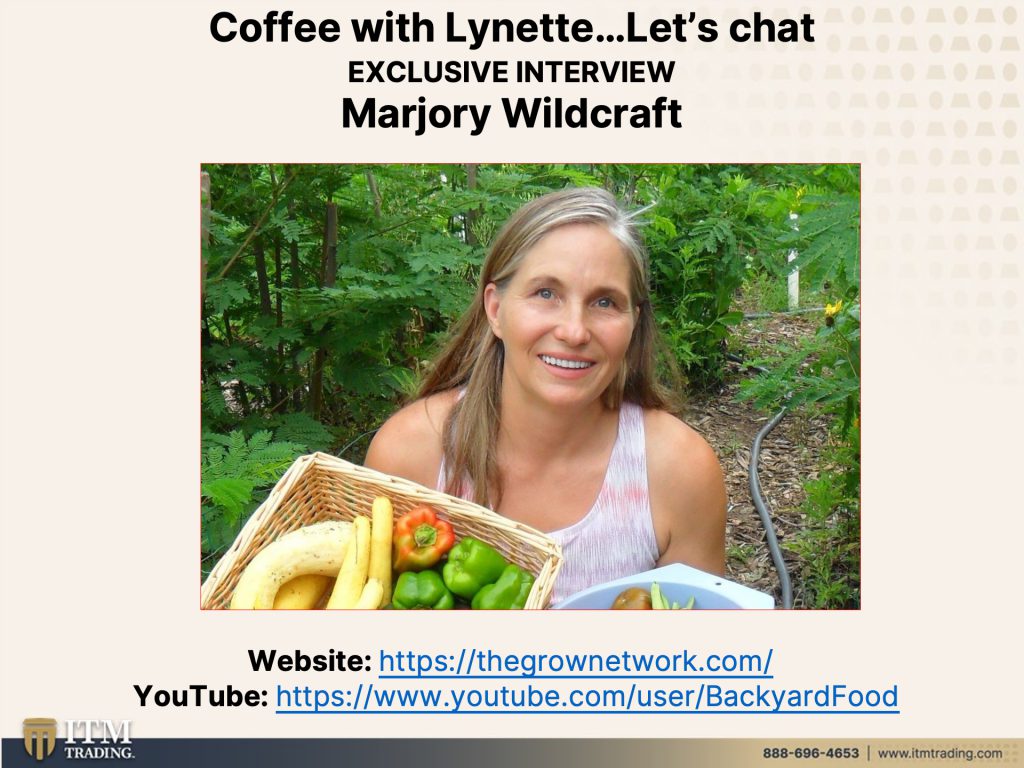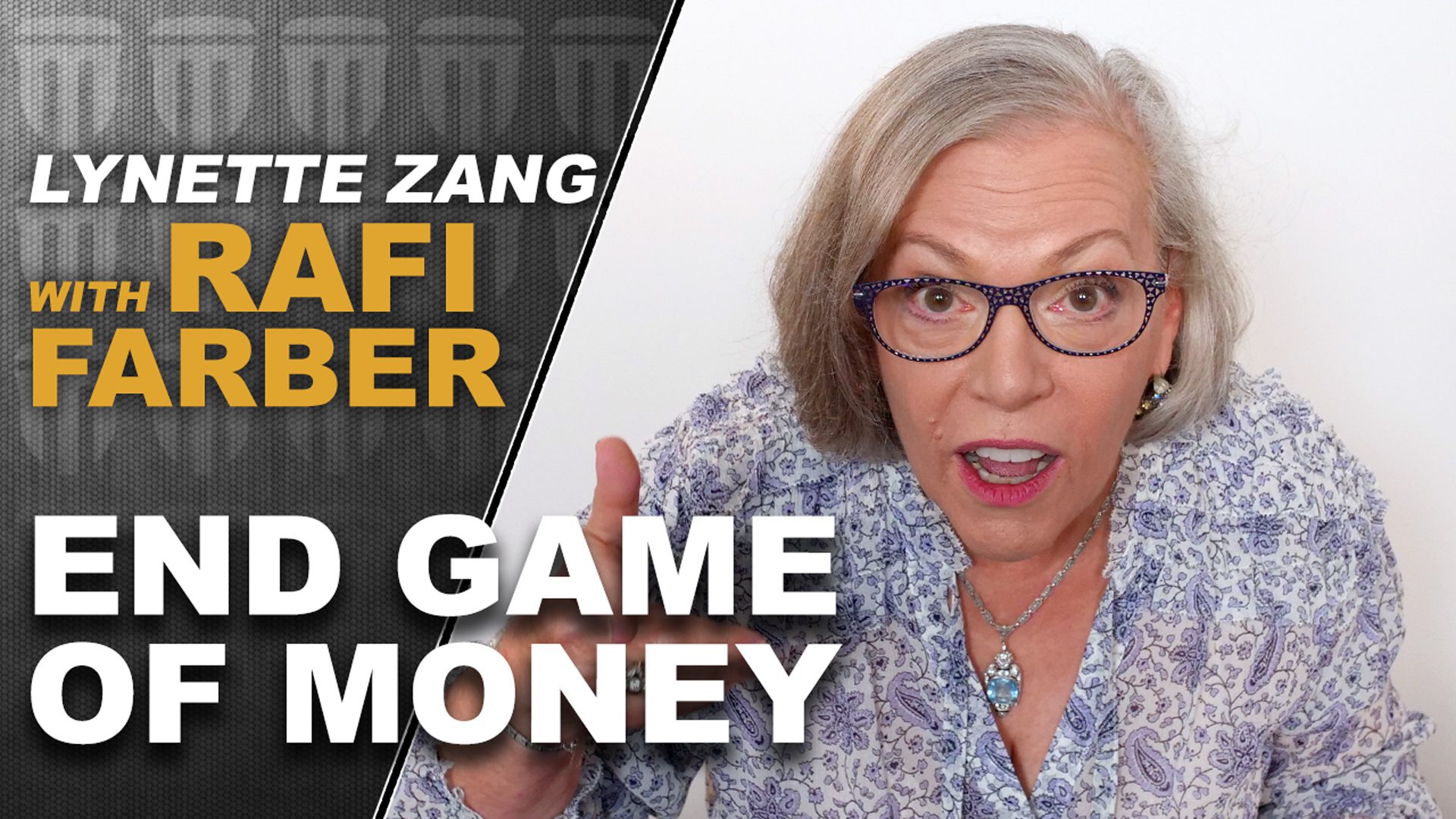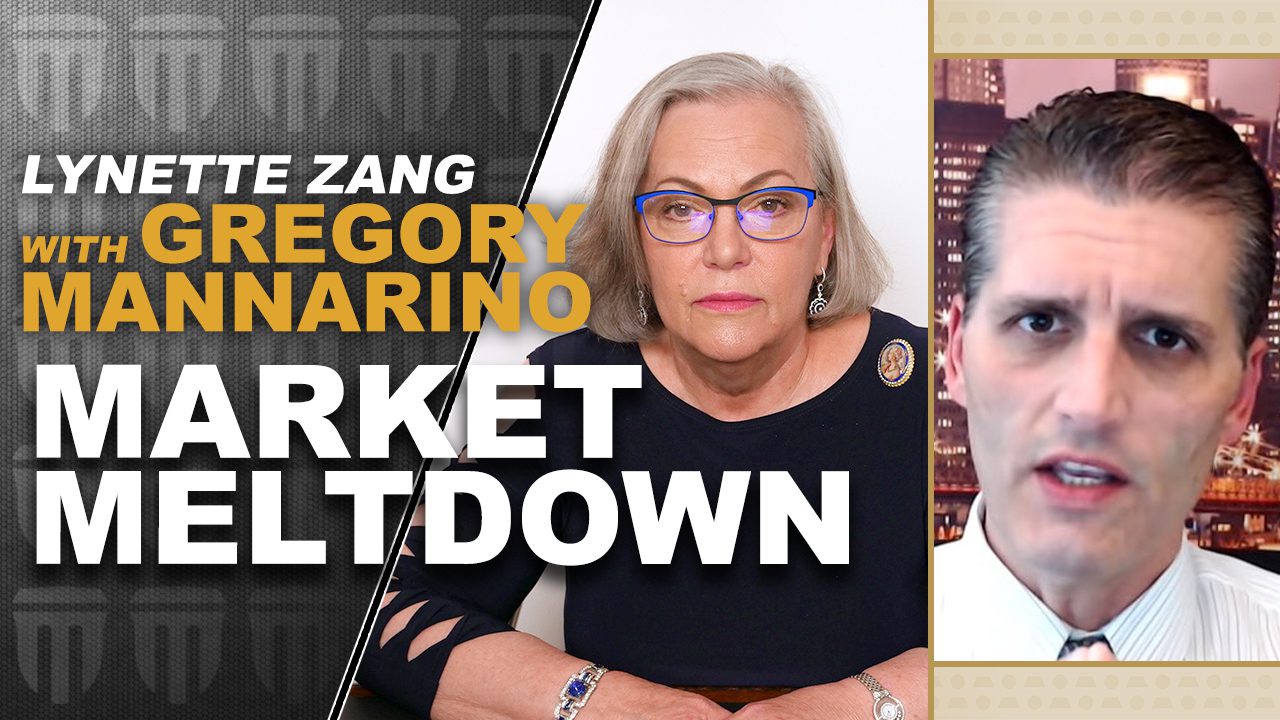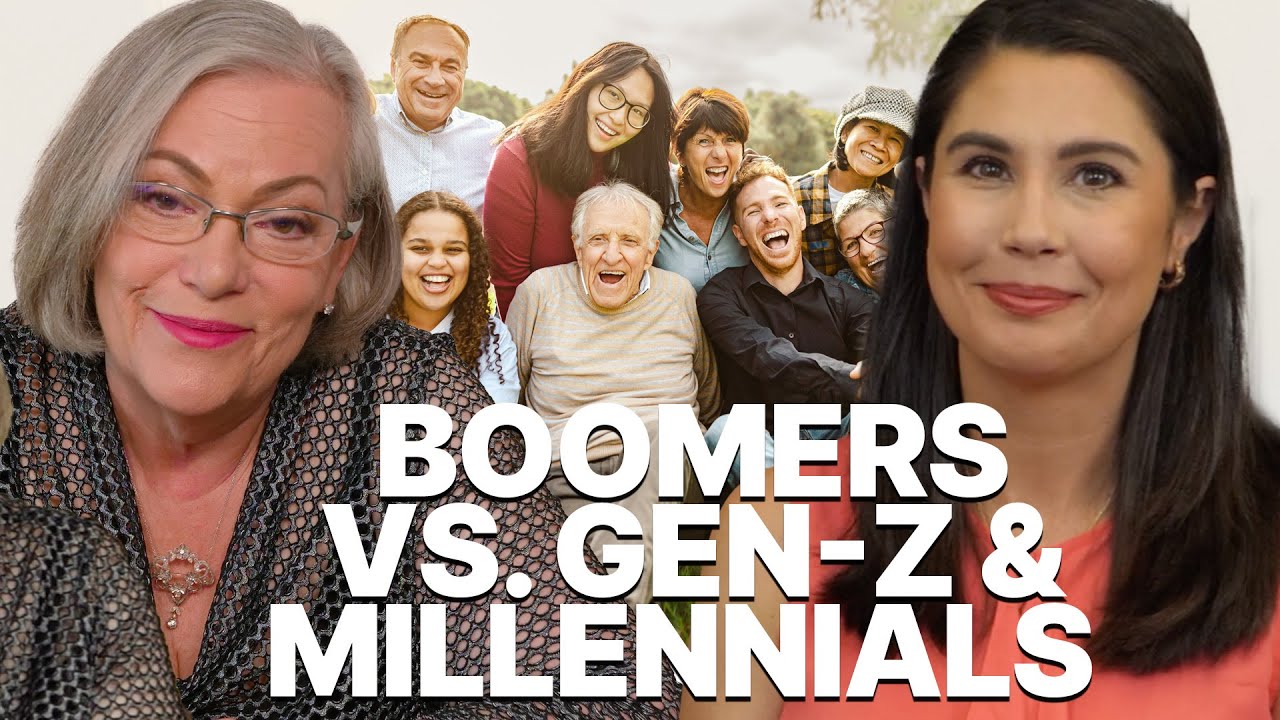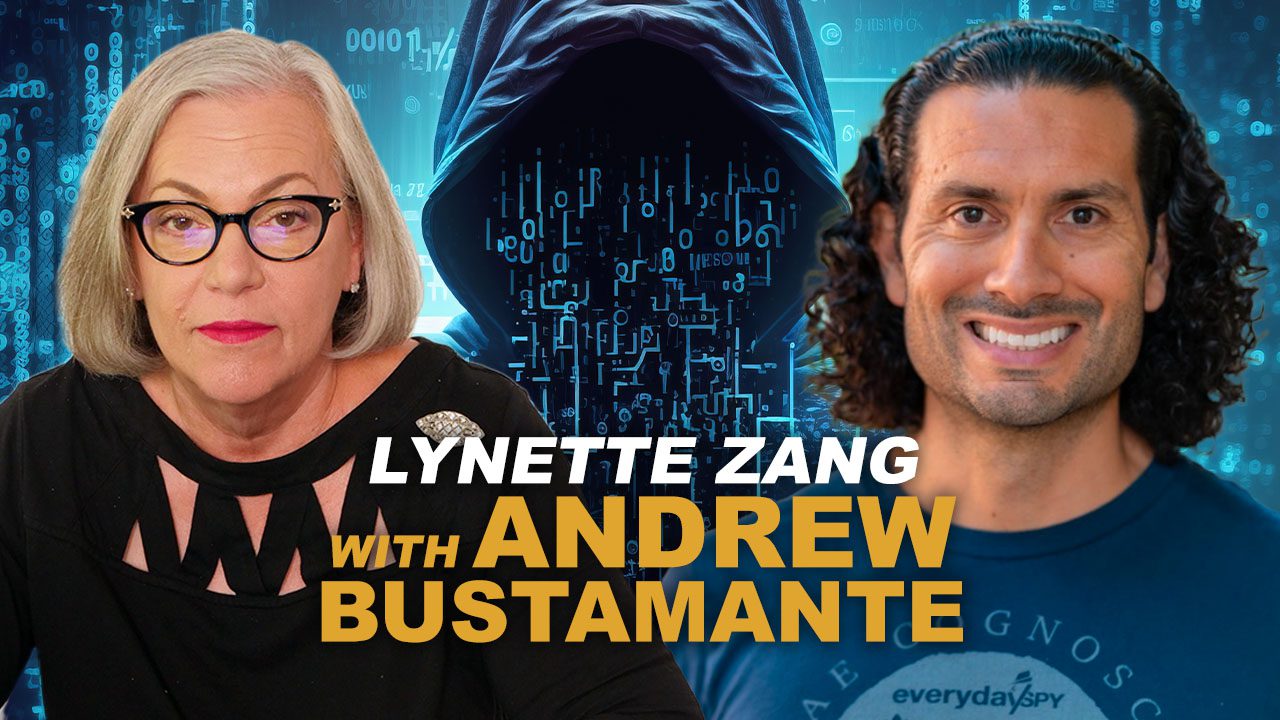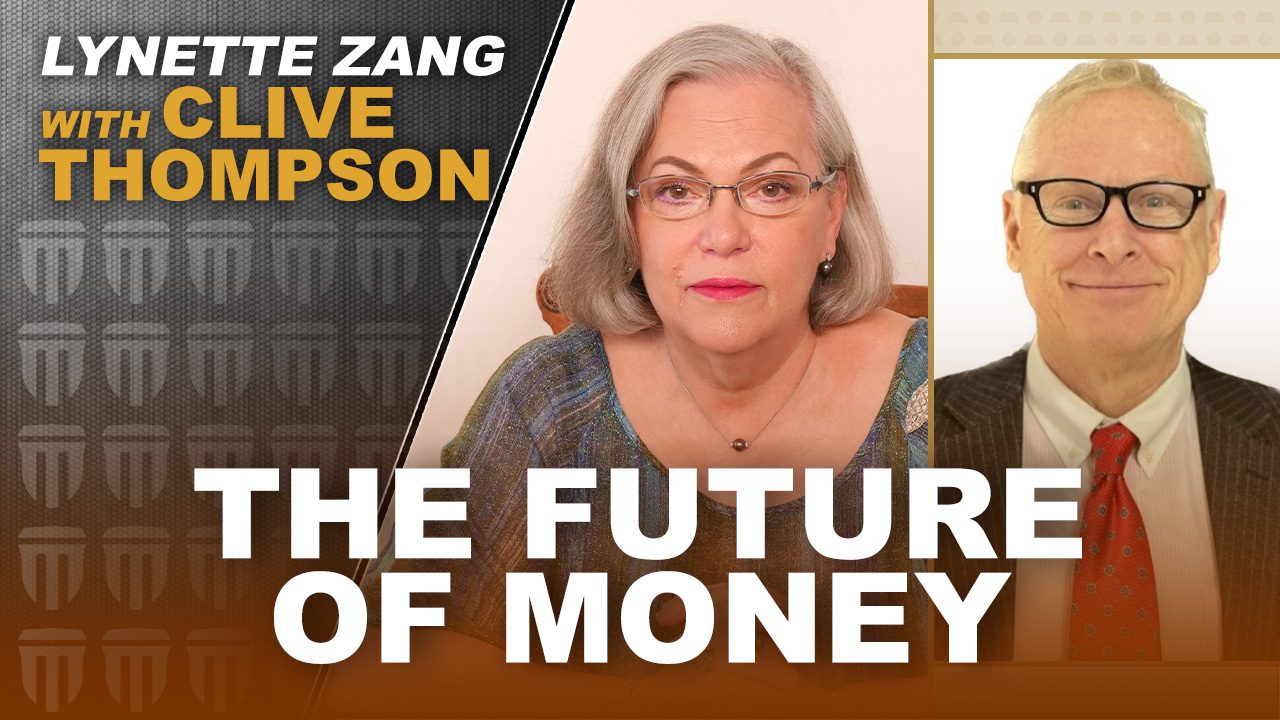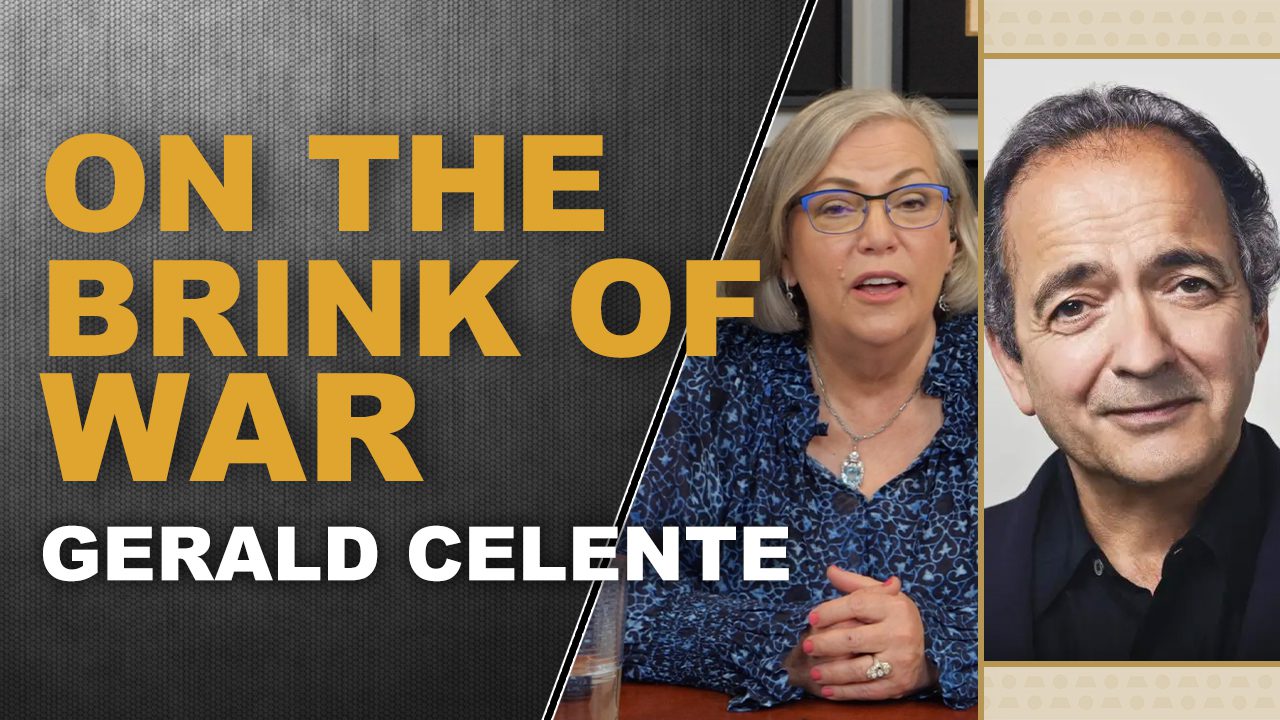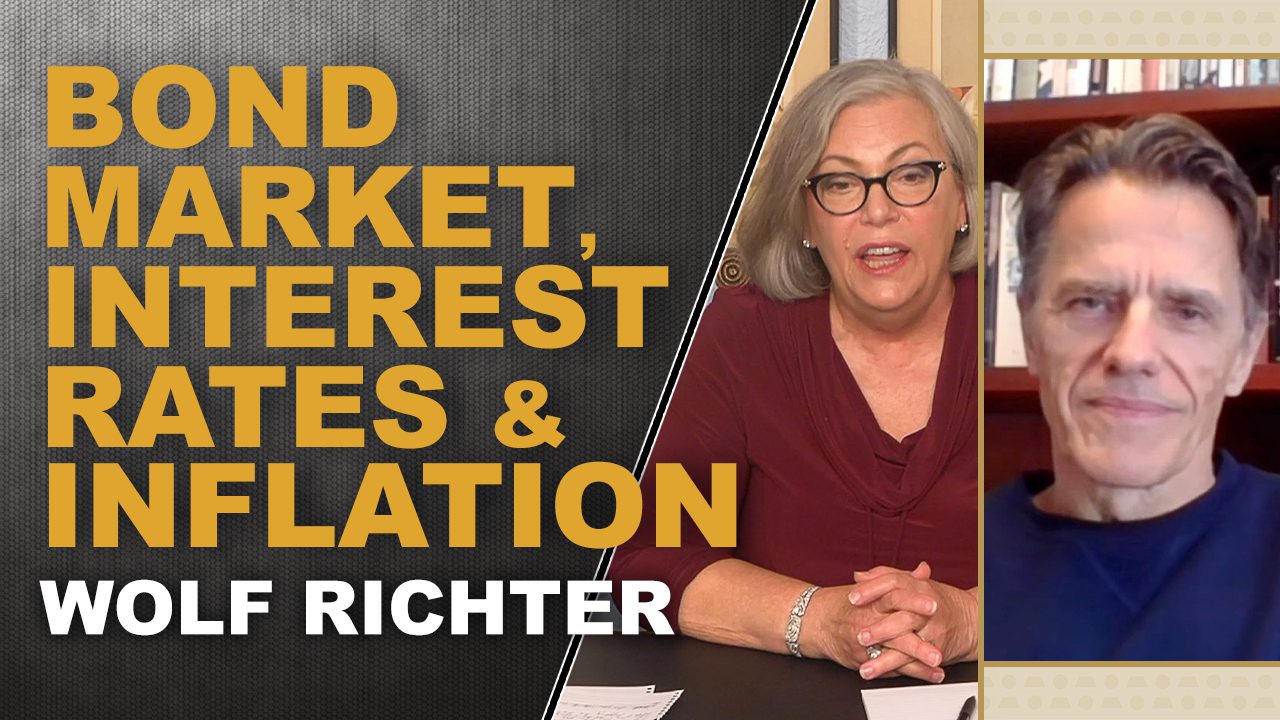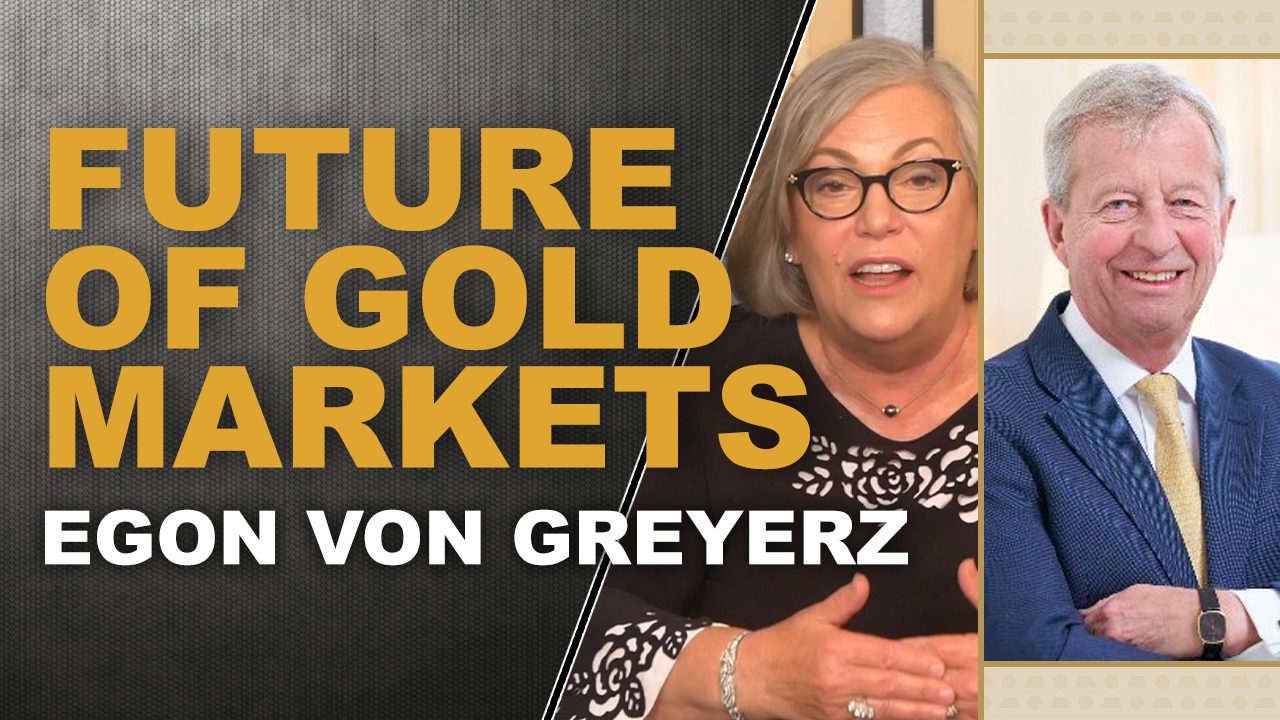[PT. 1] PREPARING FOR HYPERINFLATION…with Marjory Wildcraft & Lynette Zang
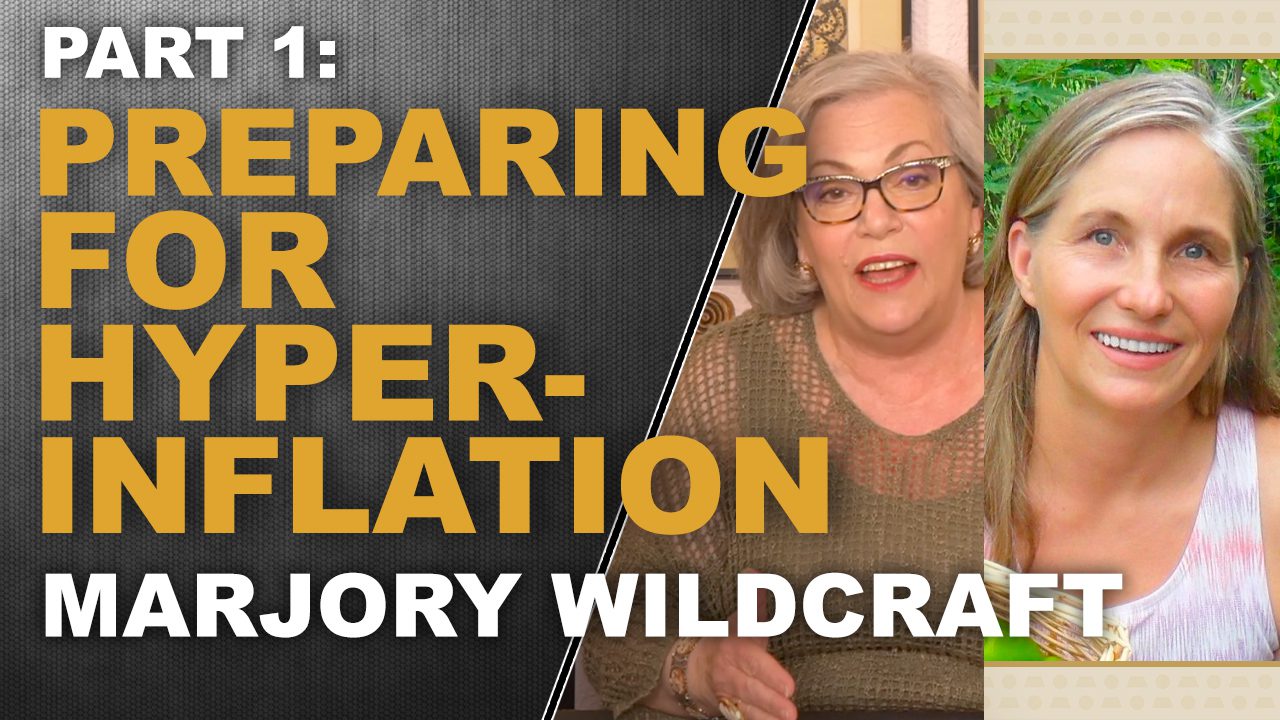
My guest Marjory Wildcraft is the founder of The Grow Network, which is a community of people focused on modern self-sufficient living. She has been featured by National Geographic as an expert in off-grid living, she hosted the Mother Earth News Online Homesteading Summit, and she is listed in Who’s Who in America for having inspired hundreds of thousands of backyard gardens. Marjory was the focus of an article that won Reuter’s Food Sustainability Media Award, and she recently authored The Grow System: The Essential Guide to Modern Self-Sufficient Living—From Growing Food to Making Medicine.
She is best known for her DVD series Grow Your Own Groceries, which has over a half million copies in use by homesteaders, foodies, preppers, universities, and missionary organizations around the world.
Since food becomes the single biggest issue for most people during hyperinflation and we should now be able to see this in our current environment, I’m so glad to have her back today.
Watch Part 2 on the solutions below ⬇️
TRANSCRIPT FROM VIDEO:
Marjory Wildcraft:
I see the world collapsing. It’s happening. I mean, you and I you’ve been talking about it for years. We’ve all been knowing that everybody, I believe everybody viewing here has known that this was gonna happen, right? It’s not rocket science. This system is completely unsustainable. If you’re watching this channel and you’ve been watching Lynette you’re way above what’s going on with the, to the with the rest of the world and definitely take this message to heart.
Lynette Zang:
I’m Lynette Zang, Chief Market Analyst here at ITM Trading, a full service, physical gold and silver dealer specializing in custom strategies. And I’ve said many, many times, and I’ll probably say it many, many more times. Food becomes the single biggest issue during currency regime shifts. And we can certainly see on a global basis how important that is. So today we have Coffee with Lynette with a wonderful returning guest, so important, Marjory Wildcraft, who is the founder of The Grow Network, which is a community of people that are focused on modern self-Sufficient living extremely important. These days she’s been featured by national geographic as an expert on off-grid living. She hosted the Mother Earth News Homestead Summit, and she is listed in the who’s who in America for having inspired hundreds of thousands of backyard gardens. Marjory was the focus of an article that won Reuter’s food, sustainability media award. And she recently authored The Grow System, the essential to modern self-sufficient living from growing food to making medicine, critical these days. But she’s best known for her DVD series, grow your own groceries, which has over a half million copies and used by homesteaders foodies, preppers universities, and missionary organizations around the world. So this is a very, very important discussion Marjory, especially with food and security at extreme levels. And frankly, it looks like it’s getting worse. So thank you so much for coming back today. I
Marjory Wildcraft:
I’m, I’m glad to be on, on Lynette and super appreciate the podcast that we’ve we’ve done before, both you on my channel and mine on yours.
Lynette Zang:
Absolutely.
Marjory Wildcraft:
Yeah. You know, precious metals are a super important part of surviving this next period, but food is also absolutely critical.
Lynette Zang:
Oh, beyond that. But I wanted to ask you, how did you get into growing your own food? Because weren’t you an engineer among other things?
Marjory Wildcraft:
Yeah. Yeah. My first degree is an electrical engineering and I always wanted to live overseas. So I was an expat in Hong Kong working for Motorola. And when I was there, I was so inspired. I said, I really wanna learn how to have money, make money. Wouldn’t that be cool? And I moved to Austin, Texas and created a whole real estate investment business with, you know, taking on investors and managing money and structuring deals and limited partnerships. And the whole thing, how that it all ended and abruptly and my life just completely changed was I was, and I was making tons of money and cause I did get very good at having money, make money. I was volunteering. It was so innocent. I was volunteering on a farm to table project to get locally groom food, you know, locally grown vegetables into the local elementary school. And we all thought that’s a great project. This could be a slam junk, you know, like it’s such a good idea. Right. And we’re, we’re at the Red Rock Community Center, you know, sitting on those crappy metal folding chairs of the chip for mic table in the flickering fluorescent, you know what I’m talking about, right?
Lynette Zang:
Yeah. I do
Marjory Wildcraft:
Community center. Right? Yep. And, and we were so excited cause Steve had contacted, you know, he’s our already writing grants. There’s tons of grant money for this kind of things. And Patty had talked to the principal and she talked to the PT. They were all excited. And Mike who, this guy, the researchers, he, one of these beards he’s always messing with from those, you know, wire grim glasses and, and it for kids that eat higher quality food, they score massively higher on intelligent test and they have way less behavioral problems. The same is true for adults by the way. Oh
Lynette Zang:
Yes.
Marjory Wildcraft:
Yes.
Lynette Zang:
Gave me chills Marjory. You gave me chills. Go ahead.
Marjory Wildcraft:
Chill, this was gonna happen. We were all so we were excited. You know, so then this is when the whole thing really fell apart. As we got piece of paper and a pencil and we started to write down the names of, of the farmers who would provide the vegetables. There were not enough local organic farmers to provide even part of the vegetables for one small rural elementary school in all of Bastrop county. Wow. Like we’re right next to Austin, Texas, a really progressive area. And there is not enough locally grown food. And my body started, I involuntarily just started shaking. Like I, and it would go on for hours because I knew that there’s only four days worth of food supply in the grocery stores. Yep. And that the food gets trucked in an average of 1500 miles on adjustin time trucking system. Yep. And I, I had just found out, there is no food in the countryside. Like there’s no plan B and I’m, you know, 20 million Texans, central Texas, they all want to eat that’s 60 million meals a day and there’s, if anything happened, you know, so really literally I, I couldn’t stop shaking. I ended up selling like there’s no sense in making money when that’s just, no, there’s no, that’s not what my life purpose was meant for anymore. So I sold the business and I just started for focusing on what’s the best way to learn how to grow food. And, and I will tell you, my, my health deteriorated, my relationships deteriorated. Because you know, I’m just so focused on this thing. And my kids and I like weren’t, we weren’t being invited to birthday parties and family and stuff. And, and, and one of my sister-in-laws really kind of personified the whole thing. She’s like Marjory, the United States of America is the strongest country in the world. Like they may have supply chain issues in other places. It ain’t ever gonna happen here. And we are never gonna see empty shelves on our grocery stores ever.
Lynette Zang:
How long ago was that?
Marjory Wildcraft:
Yeah, that was almost 20 years ago. Yeah. And I just said, I, I don’t care. I have got, this is what I’ve been called to do. You know, they say, if you see the problem, that’s your problem to fix. And I thought, oh good Lord. You have really given me a big one here, but I just went on whole tyrant to figure out how do you take somebody who knows absolutely nothing. Maybe they’re older outta shape. Maybe it’s a grid down situation and how can you teach? How can you get, what can you, what materials can you get them? So they’ll be able to produce food very quickly and lots of really good, deep quality, nutritious calories. Yes. You know, how do you do that? And I’m really grateful that we’ve had this many years in the interim to really first I needed to learn. And then, then I needed to learn how to teach it properly. Right. The first that first video I did that even, even though it had a half a million to use, which I think is pretty old, that, that that’s probably more like a million now we’ve learned how to make the information even better and to really chunk it down into small bits so that anybody can learn this and do it. But that’s yeah, so that’s what the grown, network’s all about. We founded that and that’s, that’s why I do this
Lynette Zang:
Well, that’s, you know, it it’s critically important. I can’t tell you how many time you gave me chills when you were talking, because I can recognize myself in that. Although my, my calling is to focus on the money part, but because of that focus, that’s really why I started this farm because I saw the same issue. And, and that’s also why in our community. There is, there are homeless school that I support and, you know, we put in gardens there, etcetera. But one thing that you stated that I know that this is true, but I’d like to talk about it more with you is the fact that when you eat poor quality food, you can’t think as clearly as when you eat high quality food. And I believe that that is part of the overall plan, because if you can’t think clearly, I mean, can you address that more, more deeply?
Marjory Wildcraft:
Well, yeah, you know, the, the, the diseases that we see that are rampant now, the, the the CDC has said that they estimate that all kids of all the kids born after 2000, one third of them will have, you know, severe diabetes. That’s ridiculous! That!
Lynette Zang:
That’s preventable!
Marjory Wildcraft:
That is totally preventable, heart disease, cancer. You know, those are the highest death rate. Those, those are all preventable lifestyle diseases. They all really, you know, in America, we’re all pretty big, but we’re deeply, deeply malnourished. We’re more malnourished than, you know, places in Africa, right. It it’s a lack of fundamental minerals. And it’s because of the food supply we’ve been, you know, the, the conventional agricultural systems do not regenerate the soils. They just have taken and taken and taken and depleted them to where they’re producing stuff. That kinda looks like food. And some of it even might taste good, but it has nothing in it. And that’s one of the reasons people are so overweight that your body says, Hey, you know, I really do need some minerals here. Could you eat some more, you know, just a never ending thing. Yeah. But when you start eating your own homegrown food, oh my goodness. You’ll, you know, you’ll recognize it right away. Like that has got nutrients in it. And you do think
Lynette Zang:
And flavor!
Marjory Wildcraft:
You’re, you’re sharper! You’re clearer! You’re healthier! I mean, honestly I consider that day or that night when at the red rock community center, the, they last thing that ever happened to me in my life because now that I can, I, I can grow food. I can wild craft food. I can make my own medicine. I did not need a military industrial think tank complex to provide for me, I could just work right directly with the earth. You know, there’s such a sense of security and wellbeing. I see the world collapsing. I it’s happening ly. I mean, you and I you’ve been talking about it for years. We’ve all been knowing that everybody, I believe everybody viewing here has known that this was gonna happen, right? It’s not rocket science. This system is completely unsustainable. But there, you don’t need the system, right?
Lynette Zang:
Exactly
Marjory Wildcraft:
You can live a life without it!
Lynette Zang:
You can actually live a healthier life without it, but so many people are really dependent on it. And so we have to talk about the issues that are happening, like with the farmers. I mean, I started eating organic when you, when you go to the store and it looked like an apple with blemishes on it, and you know, it looked like an apple. Like you went out and picked it off the tree. Now everything looks perfect. When you go into the store,
Marjory Wildcraft:
When the USDA got into the, when the USDA the you, the organic brand is when the whole thing deteriorated. So you know, organics might be a good step in that. You’re gonna have less antinutrients and less toxins on it. But honestly, there’s a lot of studies that have shown that organically grown conventional food does not have much, any more than conventionally grown, conventional food. You really have to be growing it yourself, if you need, if you want that deep nutrition and you, you do!
Lynette Zang:
Yes, you do!
Marjory Wildcraft:
Fundamentally disease. You know, there’s a lot of parts of it, but one foundation of disease is now nutrition.
Lynette Zang:
Yes, exactly. Because basically what you’re doing is you’re creating an environment that the disease really likes. And so that’s what makes it grow versus eating the food that can create a more alkaline system that robs the disease of what it needs to grow. But can you talk about the move that we’ve seen unfortunately over the years for the small independent farmer and how they’ve been taken over by, you know, frankly, big pharma, cause that’s, you know, I mean, who owns the seeds and we have to talk about the seeds, so what’s happening in that area? and what do you, what have you in that trend over all these years that you’ve been doing it?
Marjory Wildcraft:
Yeah. You know, bless Willie Nelson, man. He used to have all those concerts to save the family farmer and it just, it just doesn’t work. And even now, even though there is some resurgence of small family farms coming back, if you, it is just basic economics, you know, a small farmer is trying to compete with big agriculture who’s using cheap, you know, using fossil fuels, using chemicals, using mechanized, you know scale economies of scale. And, you know, they produce a bag of apples. That’s, you know, $2 for$, you know, 10 apples and some a local organic farmer. Who’s actually really working, doing good for the soil. You know, that bag of apples for him to really justify his time or her time, you know, it needs to be sold for about, you know, 10 or $15 a bag. Right. And, and we’ve all been willing to pay more of a premium for it, but not, you know, there, there, but there’s not, you know, no people, people haven’t really valued that they haven’t really understood it.
Lynette Zang:
Personally I do.
Marjory Wildcraft:
Yeah, I do too. I mean, to me, I don’t care what the food cost, if it’s good quality food, I’m gonna buy it. I would rather pay for high quality food than pay for surgery and drugs and whatever is gonna come from not having it. Right. But that’s, we’re a little bit extraordinary. So really the smaller farmers have been trying to compete with this big system and there has not been you know, the, the consumer base now is starting to support them more, but it’s a lot of work to really grow high quality food on, you know, on a small farm. And we have not been willing to pay for that. So people have gone out. I, and even on the big farms, it’s so risky and the margins are so low, a lot of them don’t want to even farm either.
Lynette Zang:
Well, you know, we, the government seems to subsidize the lower quality and not the higher as well, which is, I think another reason why those bags of apples are $2 versus $15, you know, but I definitely, I mean, one of the ways that I think that we, as individuals can vote is by buying that $15 bag of produce, you know,
Marjory Wildcraft:
Absolutely. And, or, or growing our own
Lynette Zang:
Well that that’s ideal. I mean, that’s, you know, that’s what happened. Well, for me, it was kind of like a double edged sword. Number one, I knew what was happening with the economy and particularly when 2008 hit, I knew that the system died. And so that’s when I went and went from a little two bedroom condo, which would fine me every time I would put a pot with vegetables out, right? $50 it was so annoying. And then I bought this half acre property, which has subsequently become an entire farm in the middle of the city, you know, as an urban, as an urban farm. But it was because of my studies. And also because I saw what was happening to the food and I thought, this is, this is not the kind of quality of food that I want to eat. So I started growing and honestly I knew nothing, absolutely nothing, but I am so grateful that I’ve had that time to really get, you know, into position. Do you think that we’re going to have any better chances with the food supply chain? I mean, what do, what do you see on these bearing grocery store shelves? Is that gonna get better go away? What do you think?
Marjory Wildcraft:
No, it’s gonna get worse. If food is gonna increase in price and it’s gonna become much less available, it’s gonna become very, very expensive just to fundamentally eat. And one of the other consequences of when it gets fundamentally expensive to eat is violence increases like a lot of people who would normally be very decent people when you can’t feed your children, you will go out and do things that you never thought you would go do in order to be able to feed your children. So we’re looking at a really, really extraordinarily difficult time. Well, in 2015 there was a scenario done. And it was sponsored by Cargill, which is the largest privately held company on earth. And they have their fingers in every aspect of food production and processing and distribution. And I believe it was a, another one of these things organized by John Podesta and it was called the Food Chain Reaction Crisis. And the, the, the script for that was, and it was publicly, you know, back when they do these scenarios, they’re actually really public, you know, they’re public with it, which I think is pretty awesome. Although back at that time, I knew it was going on. I wasn’t clued in to like, oh my God, I need to pay attention to this. Anyway, the, the scenario was that something big would happen in 2020 and food prices would go up in that first year in 2020 by you know, 20 to 40%. And then every year thereafter that would go up by at least a hundred percent, a all the way out to the end of the decade. And there would be they did not factor in what, what we are going to see what we’re seeing right now, which is inflation and hyperinflation and currency collapse. This was assuming that the currency was, was at the same baseline. Yeah. But we’re seeing that last year the UNFAO food, food and agricultural organization has a food ice index. And that basically went up by about 40% in 2020. And it’s now doubling, you know, by the way they took all of that down, the food chain reaction, I think it was.org or something like that. Website used to be up there. They took it all down just prior to 2020, interestingly enough,
Lynette Zang:
Interestingly enough, isn’t that?
Marjory Wildcraft:
Yeah. I really wish I had access to all of that, but they scenario all of this and that how countries would begin to shut down, which we’re seeing right now, they would begin to stop trading with each other, especially in food. And we’re seeing that right now. Like we are, what is the one Hungary just said, and they’re, they’re a pretty significant wheat exporter. He just said, no, we’re not exporting any wheat. You know, Vietnam is a pretty significant rice cycle. They said, no, we’re not, we’re not, we’re not gonna feed our own people. You know, country after country is starting to say, no, we’re not, we’re not gonna do any trade. And now we’ve got this whole Ukraine, Russia thing going on. We’re shutting down even more. Last year, China bought up half of the world’s grain supplies, like half of the world, like, how do you buy half of the world’s grain supplies? They bought half of the world’s grain supplies. And if you’re wondering I’m I was, how do you store half half of the world’s grain
Lynette Zang:
That’s major.
Marjory Wildcraft:
Well, you know, I mean, what you don’t just like build a bunch of grain size. So what they all came in on containers. So they’re just stacking these containers up. God knows where somewhere in China. And that’s why containers now cost 500 times, you know, five, 500% more than they used to. Right. Because all the containers are full of grain and they’re using it for storage in China. Like if, if China is hoarding food and preparing for a famine, you know? Right. Don’t you think you should too?
Lynette Zang:
I mean, you know, yeah. I always say you should always do with the smartest guys in the room are doing for themselves. Central bankers are accumulating gold, China’s accumulating food. They have a large population that they have to feed.
Marjory Wildcraft:
Yeah. Every, every country is actually doing the best they can to keep their own food within their own borders. And that’s part of what this whole simulation was about. Like everything would shut down global trade would shut down. Yeah. I, so I would love to know more about how that scenario unfolded, but again, they shut the website down, but we’re looking at at least a decade of all kinds of it. Like this is not just gonna magically get better.
Lynette Zang:
Well, it looks like we’re also going for, you know, tip for tat. We’ve been talking about you know, which, which president Biden now did not importing Russian oil. And Russia’s now saying, well, you know, everybody’s threatening us to not import our oil. How about if we just don’t export our oil? You know, and we’ve got and natural gas, which has, I mean, everything, the, the level of spikes, you’re not talking about 40% or 50%, you’re talking about 3500%. You’re talking about massive percentages in now, personally, that doesn’t happen for me cause I have ponds. So I have all my fish fertilizer, but you know, I mean the cost to even grow.
Marjory Wildcraft:
Food is oil, right?
Lynette Zang:
Yes, it is.
Marjory Wildcraft:
Food is oil, every aspect of it from the machines that plow up the ground to the planting, to the chemical fertilizers, to the chemical pesticides, all of this is derived ultimately from some type of petroleum product to the harvesting, to the processing, to the packaging. And then even like I was saying that 1500 mile average delivery distance, it all, all involves oil. And like just before this, I checked in, I couldn’t, I was shocked cause crude oil just a couple of days ago was only a hundred, well only $110 a barrel. Now it’s over $130 a barrel and there’s no end in sight to this. And I think we saw in 2008, when oil hit $140 a barrel, the global economy shut down. And so it’s, you know, we’re, we’re there, we’re there,
Lynette Zang:
You know, I think it’s interesting that you point that out and you pointed out the date and I mean, 2020 was such a critical year that the timing of everything was perfect. And now with the war, it’s easy to point the finger. And you know, I, I think it’s all a bunch of misdirection. If you wanna know the truth, look over here, look over here.
Marjory Wildcraft:
I completely agree. We’ve got, you know, this oil thing with food prices are about, but, but their own printing of their own money is, was gonna cause the whole thing to collapse anyway. So
Lynette Zang:
Exactly. And I mean that’s how China bought all of that grain was just by creating money from debt that this whole system is frankly, the whole Fiat money system is imploding and it’s time to get real it’s time to get tangible.
Marjory Wildcraft:
And I, when you open this up, I absolutely wanna reflect on what you said. And I’ve seen quite a few of the interviews that you’ve done with people that survived hyperinflation. I have done a lot of interviews with people through, you know, civil war or you know, natural disaster or whatever, both a living and lots and lots of historical accounts. Yep. And you know, there’s kind of the three major things and one absolutely. I don’t have my handgun here, but security is you better get beefed up on your personal security hundred percent. Absolutely. The other is, is medical stuff. Yes. You know, the medical system shuts down, you know, if you’re dependent on a medicine, you need to stock up on that and then figure out a local natural alternative. But the biggest thing, all those survivors of those collapse talked about. It was not about, you know, violence and medicine. It was about being hungry, were starving. And that is the biggest factor in any type of hardship situation. That, that is your most immediate need. And, and yeah, you’re gonna need a lot of things, but food is absolutely primary and by a large margin.
Lynette Zang:
Yeah. I mean, that was one big reason why I decided to do, you know, grow on the exterior of my property. I grow all over the property, but you know, I don’t know cause I’ve had so many people say, oh, well you’re just wasting your time because they’ll come in and they’ll just destroy everything. Maybe they will. That’s not within my control, but I’m kind of thinking in that if people are hungry and hopeless and they have a place where they know that they can go and get food every day and feed their family, maybe they won’t destroy it because they realize how much they need it
Marjory Wildcraft:
And they’ll, and they’ll help you defend it. You know, you know, really, I I’m actually a big project. I just recently, a couple of years ago moved to Puerto Rico and you know, I don’t know anybody. I immediately started on a project to create a large scale community garden.
Lynette Zang:
Awesome.
Marjory Wildcraft:
And you know what better thing than to have everybody in the community who knows how to grow food, coming together and hanging out with them like every day or every other day, getting to know them, getting to see what they’re doing. You know, people say, I don’t know how to grow food. I’m like start a community garden. And in one season you will know how to grow food. Cause you’ll be seeing what everybody else is doing. You’ll know what works and what doesn’t work, you know?
Lynette Zang:
Exactly. So you were able to go down there and, and buy a plot of land or was a plot of land donated to you or how did that work?
Marjory Wildcraft:
I’m actually working with the city municipality, they, they happened to have this big six acre tract to land.
Lynette Zang:
Oh nice.
Marjory Wildcraft:
Yeah. So we’re still negotiating on that and, and they may have to give me another tract, but I insisted that I wanted something big, you know, at least three acres I want, I want at least a hundred garden plots there because you know, I just want a, a large mass of people. I wanna make a significant difference.
Lynette Zang:
That’s that’s really kind of incredible because I mean, we talk about community gardens, but I, I didn’t really, I can’t say that I I’ve ever started one.
Marjory Wildcraft:
Know, let’s, let’s do another show sometime and I’ll just go through all the steps and learnings that I’ve had on, on creating this community garden, cause it really is a beautiful piece. Cause as you, and I’ve heard you talk about it, cuz you know, anybody who’s been been in this for a while, there’s some real basics and one is building community is almost as important as, as having your own food supply. Maybe more like it’s really hard to have your own food supply without a community. Actually
Lynette Zang:
It takes a community. I know people come on property and they go, oh, do you do this in my spare time? Which I don’t really have any!
Marjory Wildcraft:
All of us in our, well, that’s the other thing with all the things that I’ve looked at, you know, all the different ways of growing food you know, what’s the fastest and the easiest cause nobody’s gonna have time. And just because it collapses does not mean you’re gonna have more free time. You’re gonna have less free time. Right. You’re gonna be dealing with all kinds of stuff. So yeah. How do you get stuff up quickly? And that’s been a, a big part of what I’ve been more working on.
Lynette Zang:
Well, I think this is like an absolutely perfect segway into, you know, this, what you’ve all been watching has been part one, but we now have a new channel that we want to, and I wanna give you some time to promote what you’ve gotta promote Marjory, but part two and on solutions you’ll go to Beyond Gold & Silver on our new YouTube channel. And you’ll be able to watch the rest of this interview. But before we, before we completely close out, I would like you, if there’s anything about the issues or the problems that you are seeing in the global food chain or even in the local food chain. And then I’d like you to talk about an event that’s coming up this weekend.
Marjory Wildcraft:
Yeah. So I think you see it every time you go in and you see an empty shelf in your grocery store, you know, it’s coming every time you look at that chicken that used to be, you know, $5 and now it’s $10. You know it’s coming, it’s coming. And, and you’re like, I’m, if you’re watching this channel and you’ve been watching Lynette, you’re way above, what’s going on with the rest of the, with the rest of the world and definitely take this message to heart, you need to start learning how to grow food, buy a bunch of buy as much backup food as you possibly can and start learning to grow food. Even if you’re in an apartment or a condo, do what you can. And there are a lot of solutions. And this Saturday I’m having a webinar, The Grow Network, which I founded, has always been more of a mission and well, everything every, since, since God slapped me around at the red rock community center, everything’s been.
Lynette Zang:
I get it!
Marjory Wildcraft:
A purpose driven thing. So we’re what we’re offering is a free webinar on Saturday where I’m gonna just condense like 20 years of looking at this problem and you will come away from that webinar with an action plan of how to get started. A very clear idea of what’s realistic to produce and when and how, and, and regardless of what time of year it is or what location you’re in, you will have action steps to get started today to start growing food. So we’ll go a little bit over, you know, the global situation in and what the top producing countries are doing and what they’re not, then we’ll get right into how do you do this? And then also bring your questions cause the most part that people love the most is we have a live Q&A afterwards. So that’s coming up this Saturday and Lynnette, I’m sure you’ve got a link for people to be able to click on, to get
Lynette Zang:
To that. Absolutely. It’s both below and on our blog. So I think this is a really important webinar and I encourage everybody to attend. I’m gonna attend. So we’ll see you there.
Marjory Wildcraft:
Awesome!
Lynette Zang:
And to everybody out there, I hope that you got a lot out of this because you know, food is the single most important issue. You need to be prepared. You need to be prepared. So I agree with Marjory as much food as you can put back, but also growing some fresh food. I mean your body needs it and your brain needs it. And we all need to be thinking more clearly. So that on the other side of this mess, we retain choices. This is about sustaining your current standard of living. And if you can’t eat, you are not able to sustain your current standard of living.
Marjory Wildcraft:
That’s true.
Lynette Zang:
Right? Yeah. But it’s also about, you know, I mean it’s about community and it’s about family and it’s about coming together to weather this massive storm, that it would be hard for me to imagine that anybody cannot see.
Marjory Wildcraft:
This is coming. Yeah. And you know, Lynette, we will switch over. I do wanna say though, I am so grateful for that day at the Red Rock Community Center and, and everybody viewing watching this, that, you know, a couple of years from now, and you’ve got a flourishing garden and you’ve got chickens and rabbits and you’re producing your own food and you’ve got new levels of energy and clarity and health. And like me you’ll look back and you’ll go. That was the best thing I ever did in my life.
Lynette Zang:
Absolutely. Let me tell you in, in March and April of 2020, and since then I’m walking around my gardens when this whole thing started hitting and I’m folding and I’m saying, thank God because I had no idea what to do. I just jumped in. Now you’ve got an expert. I could have used your guidance when I was trying to figure this out, but you had to figure it out too. We all, you know, we all do. But then there are those of us that have gone before and you know, it just makes a whole lot of set to build on that knowledge base and take what works for you, you know, and then implement it so that you’re not faced with food and security. That, I mean, it is a, it’s been a growing problem and it’s now getting much, much worse. So I, I will tell everybody it is definitely time to cover all of your assets, including your ability to feed yourself and your family. And until next we meet, please be safe out there. Bye bye.
Follow Marjory Wildcraft ⬇️
Webinar: “How To Grow Lots Of Food In A Grid Down Situation Even If You Have No Experience, Are Older, And Out Of Shape”
https://thegrownetwork.com/i-can-grow-food-webinar/
Website: https://thegrownetwork.com/
